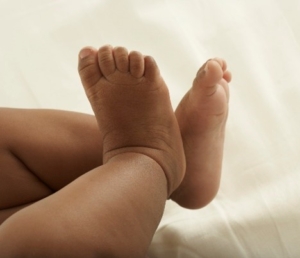Assessing for SpLD Series
by Jan Thomson-Long
Background Information – Birth and Early Development
“I think, at a child’s birth, if a mother could ask a fairy godmother to endow it with the most useful gift, that gift should be curiosity.” ~ Eleanor Roosevelt
 Specific Learning Differences (SpLD) such as dyslexia and dyscalculia are developmental in nature. So, a good assessor will want to know all relevant medical information. This might include pregnancy and the birth. Dyscalculia is known to occur because of a couple of conditions although there is no evidence that Dyslexia does. Neither are diseases nor the result of defective brains. There are a few cases of acquired Specific Learning Differences following accidents.
Specific Learning Differences (SpLD) such as dyslexia and dyscalculia are developmental in nature. So, a good assessor will want to know all relevant medical information. This might include pregnancy and the birth. Dyscalculia is known to occur because of a couple of conditions although there is no evidence that Dyslexia does. Neither are diseases nor the result of defective brains. There are a few cases of acquired Specific Learning Differences following accidents.
Early difficulties can be responsible for delays in speech and language, for example hearing impairment either due to an auditory loss or repeated episodes of glue ear. There are key times when we know children rapidly absorb learning and if these times co-inside with hearing loss that can impact upon learning phonics for example. Eyesight problems such as squints, tracking, short- or long-sightedness can obviously have an impact on reading since if you can’t see it you can’t possibly read it. Separate to this is visual stress (see https://spldassessment.com/2023/03/06/the-eyes-have-it/) .
Periods of major illness or accidents which have caused loss of school attendance will mean that learning was disjointed, and gaps could exist, this again needs to be understood as if those gaps are addressed the student may soon be able to catch-up with their peers. As of course could regular non-attendance since lessons are designed to be cumulative.
We’ll also check what level of schooling was received during the Covid lockdowns. How old was the student? Did they cope with the type of learning they received? What else was going on in the family? Some families had key-worker parents who were still working whilst trying to meet their own children’s needs. All this may be relevant.
So, we’re interested in milestones, were they met or was the child behind their peers. Did they say their first sounds, words and sentences when expected. Did they crawl and walk at the usual times. Could they tie their shoelaces and ride a bike. Are they accident prone? Is their hand/eye coordination good? Do they enjoy sports? Are they overly active? Are they particularly anxious? Do you have any concerns over their mental health?
It can also be useful to know if any other professionals been involved such as Speech & Language Therapists or Occupational Health. If they have then a copy of their report will be helpful.
The list could be endless, and not relevant to most people but some of the above questions might prompt you to remember something that could explain their current difficulties which is why we ask.



